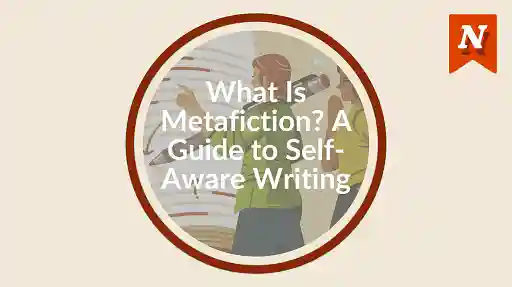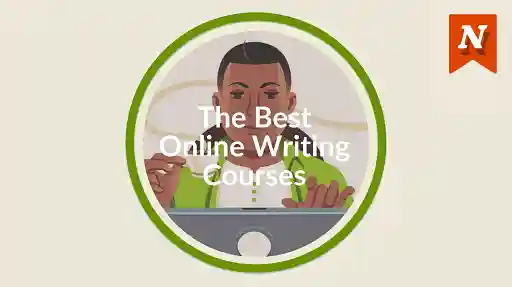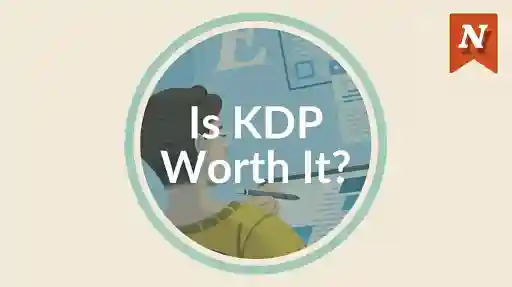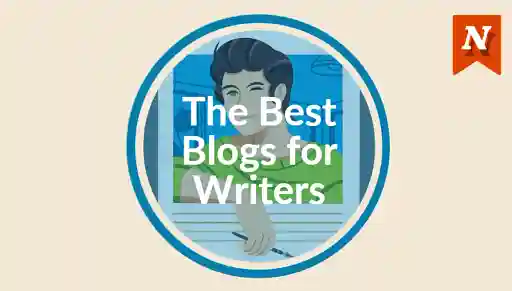Writing a book online comes with many questions and choices. For example, what is the best website to write your book on? How much money can you make from writing a book and self-publishing on Amazon's KDP or joining a platform with a per-reader revenue sharing scheme? Here are 8 questions we answer often:
8 questions most often asked about writing a book online:
- What is the best website to write a book?
- How do I stop someone from stealing my novel ideas?
- Will publishers mind if I've shared writing online?
- How do I find a good online critique group?
- Should I write for fun, or can I write a book online and get paid?
- What if I need help finishing my book?
- How can I write a book online for free?
- How much money can you make from writing a book?
What is the best website to write a book?
The best website to write a book depends on what you want to achieve, and whether you want to finish writing solo or with a community for accountability, writing feedback and support. It depends whether you want a platform to self-publish, or a place to do the creative work preceding publication, or both.
Online writing platforms tend to have a specific type of crowd. Wattpad, for example, skews younger in its user base. Now Novel, by comparison, has community members ages twelve to seventy-five.
There are many round-ups of the best websites for writers (we received a mention in Reedsy's roundup of the best writing sites in 2021). You can read our own round-up of 200 writing resources here.
Choosing the right writing platform for you:
With such abundance of options, it may be hard to choose where you write (or outline and develop) your book. So make a smart list:
- What do I want to achieve?
- What writing tools or help will I need?
- How big is my budget for paid services or writing apps?
- What do reviews say? Are there any?
- What trial options are there to work out whether it's a fit for me?
It helps also to read third party blog reviews about new, unfamiliar services.
If a writing site is a scam, there's a good chance you'll find a prior victim's review listing reasons to avoid.
Steer clear of any site that tries to coddle you into an exclusive publishing contract with unfair terms.
(We use an independent reviewing platform called TrustSpot where confirmed premium members can leave honest reviews, for example.)
How do I stop someone from stealing my novel ideas?
Opening up and sharing your writing with others online can be daunting. Writers often ask whether other members of the Now Novel community might steal their story ideas.
A simple truth: Most writers are too busy worrying about protecting their own ideas to steal yours.
What's more, even if you're a published author, another writer could pass sections of your work off as their own. Plagiarism is not unheard of, even between esteemed authors. In fact, it often seems that's where it's most common.
There is also a difference between ripping off another author's work entirely, pretending it is your own, and the trading of circulation and mutual reference that naturally goes with the territory of creation. The cross-currents of reference and influence.

How to protect your intellectual property or copyright:
1. Keep or register supporting evidence that you are the original copyright holder. If you plan to share a substantial part of a complete manuscript, you can send a sealed copy by registered post to yourself first. It will bear the date. To keep a digital original record, save your work as a read-only document. This will show the date of creation and the last time the file was altered.
2. Don't use writing websites that state in the terms and conditions that your writing remains property of the website. On Now Novel, for example, your work remains your copyright - you only provide permissions that enable us to store whatever you want to save to work on later privately and securely, much the same as you would give, say, Google Docs this permission.
3. Remember that if you find a publisher, it is normal to give up certain rights to enable your publisher to legally publish your work. Read terms and conditions carefully and submit to publishers you know are trustworthy and respected. Investigate whether you can retain certain rights (for example, if you get a print publishing deal, what the terms are regarding digital publishing or exclusivity).
4. Check with your national copyright regulatory authorities what the specific laws and recommendations are for writers in your country.
As for having ideas (rather than actual text) stolen, Jane Friedman puts it well in her post on idea theft.
Beside it being unlikely someone will steal your idea (unless you have a reputation for being a million-dollar-idea generator), nobody else can execute your novel idea exactly the way you will.
Will publishers mind if I've shared writing online?
This depends on your publishers' terms and conditions.
If your entire novel or book is freely available online, this would undercut any revenue a publisher could hope to make through sales (potential buyers could easily read the 'product' you are helping your publisher to make money from for free). Keep in mind that publishers will be wary of prior publication where other third parties could hold rights to your work in part or full.
On the other hand, if previously published work becomes a viral success, many publishers will see this as an indication of your commercial viability and market potential. You may receive an offer to republish your work with greater exclusivity.
Sharing extracts of your work with a private writing community typically will not be seen as prior publication because:
- Your writing is not accessible just anywhere for free (access is password gated and anything you've shared will also likely differ from the final, edited form).
- Your work is not being sold in a way that competes with trade your publisher hopes to do in selling your work.
How do I find a good online critique group?
There are many websites for writing a book online and getting feedback as you go. Now Novel, Scribophile, Wattpad and more.
Again, as with finding the right website for outlining or developing your work, ask:
- What do I want to achieve?
- What don't I want from a writing group?
That second bullet point is crucial: If you don't want to read or discuss a specific genre, for example, you may want to avoid a circle where most of the writers work in that genre.
At the same time, it is beneficial to get outside of your comfort zone and critique many genres. Through editing fiction from historical to romance, political thriller to creative non-fiction and memoir, I've learned not only much more about writing craft but the different narrative and other devices one can borrow from each genre to craft a richer story, whatever the genre.
If you'd prefer to connect with writers in your genre, you can create your own genre-specific writing group on Now Novel and invite writers you know to join.
Should I write for fun or can I write a book online and get paid?
One of the biggest warning signs that a writer might have unrealistic expectations is when they have profit-driven goals, but no SMART goals to get there.
This is not to say that you can't write a book online and get paid. But writing is not a get-rich-quick scheme.
Many seasoned writers have written multiple manuscripts before landing on a book that sells. Others might be successful on paper but earn little due to complex royalty arrangements or exploitative book contracts.
A further caveat to writing a book to get paid is you are investing in a goal that isn't SMART (since much of the commercial outcome is beyond your immediate control). As we've mentioned on Now Novel before, SMART goals are:
- Specific
- Measurable
- Attainable
- Relevant
- Time-based
Writing to get paid: Important questions to ask
If you want to make money writing, it is going to take work (and most likely a side-hustle, from teaching to writing copy and other writing-adjacent activities while you get there).
Start with smart goals that are relevant to the broader goal. For example, research:
- What is the market size for my fiction genre?
- What will my costs be in writing this book? (Include editing, cover design, formatting, distribution and promotion, as well as your time)
- What do I need to price my book at, and how many copies do I need to sell, to recoup my expenses and start making a profit?
- What will my marketing strategy be (and do I need help with this or am I willing to put in extra time to learn and practice promotional methods?)
As an example, we calculated that for Now Novel's first writing guides (which include videos and workbooks), it took a full calendar year until we earned any profit.
If you are interested in self-publishing, watch coach Romy Sommer's tips on self-publishing. Romy is hybrid-published, both via HarperCollins and through self-publishing, thus knows the ins and outs well:
Try to always write for fun, to develop a skill, to explore, create and experiment. There are many easier ways to make a quick buck. Writers who make it big have either paid their dues or have very good PR and marketing teams.

What if I need help finishing my book?
Popular culture loves to repeat the image of the author who sits down in a magical flash of inspiration and churns out a flawless, publishable piece of writing on first draft.
This, of course, is nonsense. Although a lucky few write without angst, pause or hiatus, many more writers have projects they work on either consistently or off and on for years. Many of us struggle with issues such as mental health or busy jobs that leave little time for consistent, productive creative progress.
There are hacks to stay motivated and get the job done, though.
Yet there is also no shame in getting help finishing your book, whether this be a writing partner, accountability or writing sprint group, or a creative writing coach who's done it all before.
This way, you can make the most of the time you do have to write, and make faster progress with someone to bounce ideas off and share story snippets with for constructive feedback and guidance.
How can I write a book online for free?
Another common question is where to find free writing tools and resources.
Google's suite of tools is extremely helpful. Master using the 'outline' panel in Google Docs, for example, to organize documents well with headings and subheadings so you can jump to the information you need to find quickly.
For example, if researching London in 1850, you could create different sections linked in the outline panel for your research into subjects such as the clothing of the times, major events, and more.
Other free tools besides free word processors include creative tools such as Azgaar's fantasy map generator - a helpful resource for brainstorming the lie of fictional lands.
Free resources on our own writing platform include:
- This blog (with 400 articles and counting).
- Our free eBook guide to scene structure.
- Short email series on writing craft (scroll to the bottom of the page).
- Free writing feedback from peers in our critique groups
How much money can you make from writing a book?
This is a common question, but a complex one. There are multiple factors in what makes a book a commercial success:
- Marketing and discoverability - how easily can the people most likely to purchase your book find it? How much can you invest in promoting your work (either in time and effort, money, or both)?
- Market and readership - how many readers are there in a given market for your genre or subject matter? How many are interested in your core themes? How saturated is this market with competition?
- What distribution options do you have and what is the profit sharing model?
Many indie authors are kind in sharing their earnings transparently, both on writing blogs and YouTube.
Even some traditionally published authors share about their earnings, such as this candid post over on Writer Unboxed by Kathryn Magendie.
There are also helpful opinion pieces, such as this post over on Creative Indie which has a great takeaway:
Average numbers may seem low, but this 'average' includes books authors wrote as a 'get rich quick scheme', books where the author decided not to work with an editor, and books where cover design couldn't hold a candle to what is out there and selling. As they put it:
If you want to be successful and sell more than average (100 copies or so), then you need to do everything much better than everyone else is.
Derek Murphy, 'How much does the average author earn publishing their book?'
As Romy shared in her webinar for Now Novel, 'How Publishing Works', series are also interesting. Why? Because you can get smart and create a sales funnel by selling your first book cheaper, as a gateway to sequels you sell at a higher price. Your first book needs to hook potential readers for this to work, of course.
Non-fiction is also worth exploring if making money is your primary aim. Share expertise or life experiences you are qualified to turn into rich and illustrative narrative.
Do you have any questions specifically about writing a book online? Ask in the comments section. If you'd like open, helpful feedback on your writing, get a free sample edit when you send us an editing query or create an account for feedback from our community.











